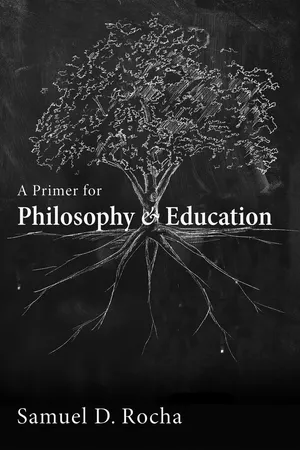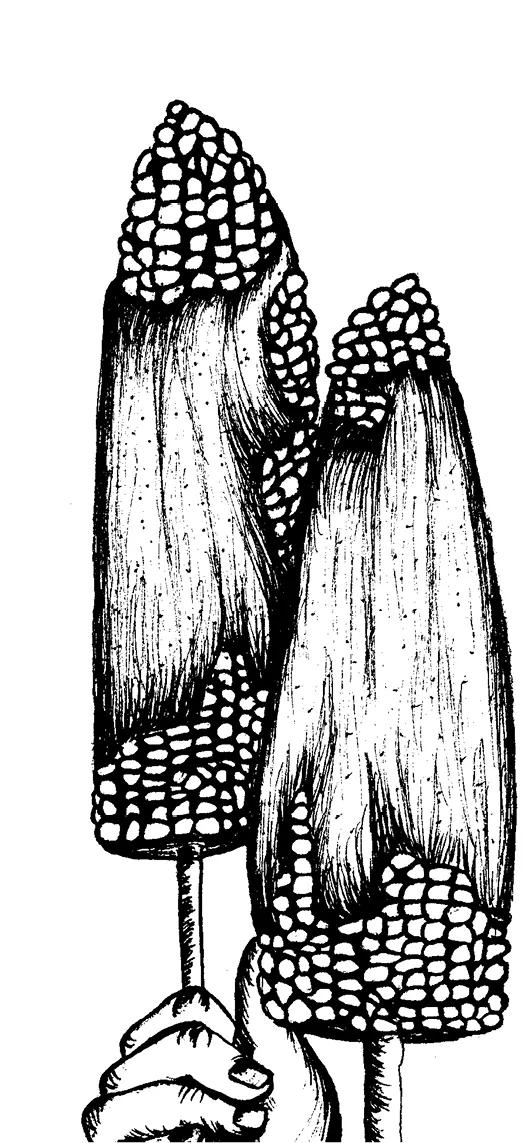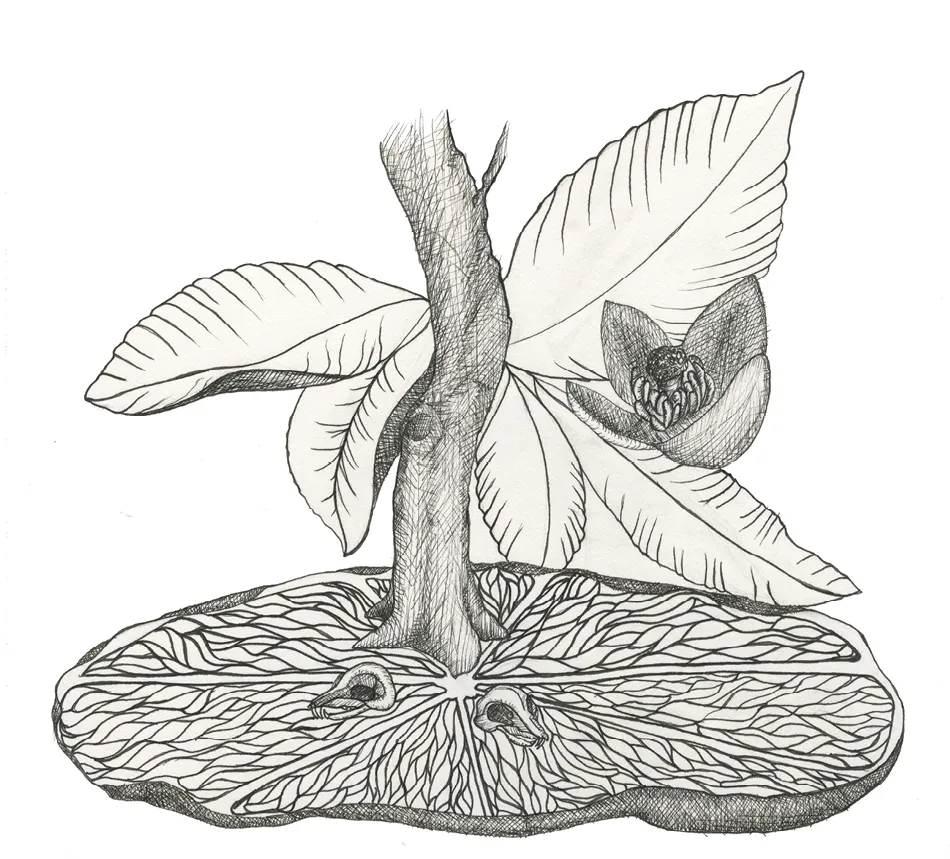![]()
1
Introduction
Have you ever painted something? If you have (and have done beautiful work) then you probably already know what a “primer” is.
For those who may not be so well acquainted: before you can properly paint a surface—before you can paint a car, a house, or a cabinet—you must first prime it. This involves all sorts of preliminary tasks: washing, scraping, sanding, and so on. Once the preliminaries have been executed, and executed well, the first thing that is applied to the readied surface is called “primer.” In a sense, one must “prime” the surface for priming! Get used to this Russian doll or onion-like, layered situation.
The priming process is preparatory but essential; it prepares a surface to become a base, receptive to the coats of paint that will follow. This is what the word ‘primer’ points to. This is what it attempts to describe and show. To be extra clear: the word ‘primer’ refers to the preparatory stage that enables the upcoming work to be done, and done well. You could paint without priming, but that would be cheap, second-rate work.
If you are going to be serious about your work, you must prime your surface. It is no joking matter. When I use the word ‘serious’ I am not trying to exclude leisure or humor. In some cases the serious thing to do is to relax. Someone who takes life too seriously is not being serious enough about it. To be serious about something is to take it as it is and treat it accordingly.
Imagine a distance runner who does not stretch, eat well, or hydrate her body before a marathon. This runner is a fraud and a phony, a poser; she is not serious and will not be competitive. She is unprepared. Do not be like this unprepared distance runner. Be serious. Prepare yourself. To be serious, you must be willing to work hard. If you are not serious about philosophy it will be hard to be serious about education, and vice versa. Serious runners must rest, too, but not too much. Excessive preparation would be equally unserious as not enough of it. In the same way, one cannot prime too much or forever. What is important here is not the priming itself; the craft of philosophy and education is what we are after.
If the labor and artistry of these intertwined crafts does not interest you, then you should certainly not begin. Disinterest breeds a lack of seriousness. Quit for now and go discover something about which you can be serious. Go paint a house or run a marathon. Learn and master a different, but equally worthwhile, craft.
When a piece of wood is properly primed, it becomes receptive to the paint that will follow. It is ready to absorb some of the paint, stain, or varnish; but it is not primed to do so without resistance. Think of a board as a sponge—a very hard, nonabsorbent sponge. Priming involves struggle and resistance. It is not passive. While it is important that you prepare yourself for the painting of philosophy and education, I do not intend your preparation to preclude you for passivity or indoctrination.
A primed board is still resistant, allowing its surface to be painted, but nothing deeper. Not yet: only something much more potent, like fire, termites, or prolonged immersion in water, can pierce into its core. This should clarify what I am asking of you and, also, what I am not asking.
As you have seen, this primer for philosophy and education uses the expression ‘primer’ quite literally: it is intended to prepare you to become receptive, in the proper way, to the philosophical and educational content that will follow. It should help you avoid doing second-rate work. It will invite you to be serious about philosophy, education, and, hopefully, things in general: everything.
‡
A thought and a question: Think of a time you primed something. It doesn’t have to be wood or your mind; it could be anything. What happened?
![]()
2
Priming and Painting
Priming can seem ironic. It can appear almost identical to painting because both are forms of brushing a substance onto a surface. As we’ve seen: after the preliminaries, primer is applied with a brush, in the same strokes as the paint to follow. In this sense, to “prime” is just to “paint”—to paint with primer. For this reason, priming and painting can become confused, although, in a certain way of seeing things, they might appear to be the same thing.
The difference, of course, is that there is a distinction, and a governing order, between brushing with primer (“priming”) and brushing with paint (“painting”). For me to write and for you to study this book is to philosophize and educate, but there is a difference between philosophizing and educating “with primer” and philosophizing and educating “with paint.” This book should accomplish both: prepare and perform.
For example, imagine that you are priming your wall for painting, and someone walks into the room. She could easily think you are painting, and who could blame her? You’re holding a brush or a roller, dipping it into a pan of what appears to be paint, applying a different color to the wall—making it look different. When she asks what you are doing, you would be hard-pressed to say that you are not painting. But the truth would be more precise than this: you are priming in one sense and painting in another. The only sense in which you are painting is in the brushing, the external movements. The sequence and order of your work tells a more complete and delicate truth.
These are the complexities of a primer for philosophy and education: even while priming I may appear to be painting. The preparation is performative. Due to these ironies, you may feel a sense of frustration and absurdity while reading this primer. If you do, persevere. These feelings are natural to any work that is serious and worthwhile. Running a marathon, I am told, feels totally absurd and hopelessly frustrating—at the beginning.
‡
Some thoughts and questions: Think of two other cases where the preparation can seem identical to the performance. What are they? Why do they seem identical and in what ways are they distinct?
![]()
3
Education and Philosophy
Everyone comes into direct contact with education. Anyone willing to look can see that education is common, ordinary, and pertinent to all. No one can opt out of education. There are no dropouts. We’re all educated in some way; we always have been and will be, no exceptions. To prove this, ask yourself these questions: Who is not educated in some way? When is education not going on? Where is education absent?
See?
We have been, are, and will be educated in various ways, throughout our lives. There are many kinds of education—explicit and implicit, conventional and unconventional, new and old, beautiful and ugly, familiar and bizarre, fair and unfair, good and evil—but the bare reality of education is singular and unavoidable.
For better and for worse, education happens constantly and indiscriminately. It’s the water we’re swimming in, the air we breathe. Like breathing, education usually happens without voluntary intent, consent, or attention.
Perhaps it is because of this ubiquity that peop...






